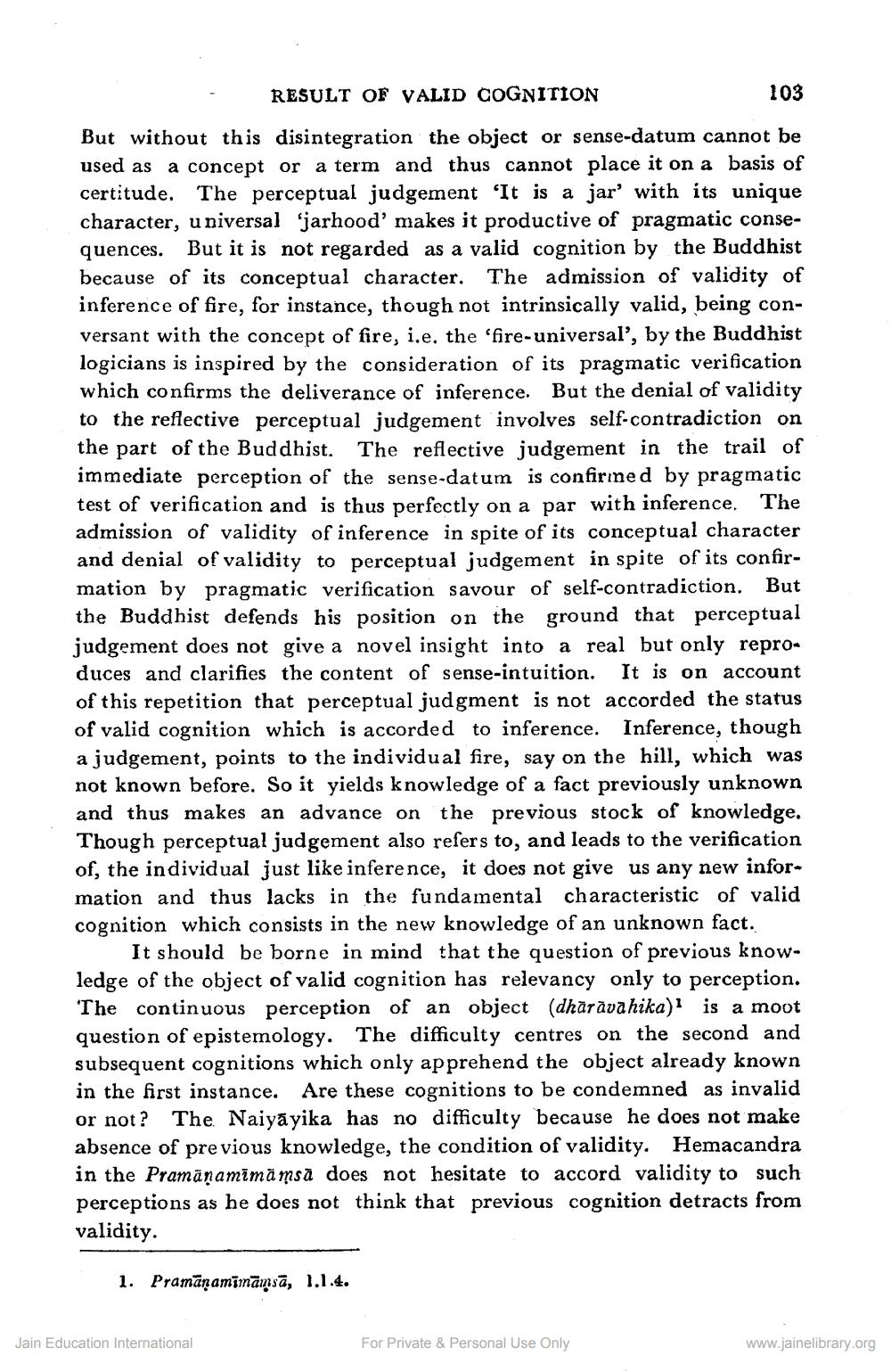________________
RESULT OF VALID COGNITION
103
But without this disintegration the object or sense-datum cannot be used as a concept or a term and thus cannot place it on a basis of certitude. The perceptual judgement 'It is a jar' with its unique character, universal 'jarhood' makes it productive of pragmatic consequences. But it is not regarded as a valid cognition by the Buddhist because of its conceptual character. The admission of validity of inference of fire, for instance, though not intrinsically valid, being conversant with the concept of fire, i.e. the 'fire-universal', by the Buddhist logicians is inspired by the consideration of its pragmatic verification which confirms the deliverance of inference. But the denial of validity to the reflective perceptual judgement involves self-contradiction on the part of the Buddhist. The reflective judgement in the trail of immediate perception of the sense-datum is confirined by pragmatic test of verification and is thus perfectly on a par with inference. The admission of validity of inference in spite of its conceptual character and denial of validity to perceptual judgement in spite of its confirmation by pragmatic verification savour of self-contradiction. But the Buddhist defends his position on the ground that perceptual judgement does not give a novel insight into a real but only reproduces and clarifies the content of sense-intuition. It is on account of this repetition that perceptual judgment is not accorded the status of valid cognition which is accorded to inference. Inference, though a judgement, points to the individual fire, say on the hill, which was not known before. So it yields knowledge of a fact previously unknown and thus makes an advance on the previous stock of knowledge. Though perceptual judgement also refers to, and leads to the verification of, the individual just like inference, it does not give us any new information and thus lacks in the fundamental characteristic of valid cognition which consists in the new knowledge of an unknown fact.
It should be borne in mind that the question of previous knowledge of the object of valid cognition has relevancy only to perception. 'The continuous perception of an object (dhārāvahika) is a moot question of epistemology. The difficulty centres on the second and subsequent cognitions which only apprehend the object already known
the first instance. Are these cognitions to be condemned as invalid or not? The. Naiyāyika has no difficulty because he does not make absence of previous knowledge, the condition of validity. Hemacandra in the Pramānamimāmsă does not hesitate to accord validity to such perceptions as he does not think that previous cognition detracts from validity.
1. Pramānamināmsā, 1.1.4.
Jain Education International
For Private & Personal Use Only
www.jainelibrary.org




